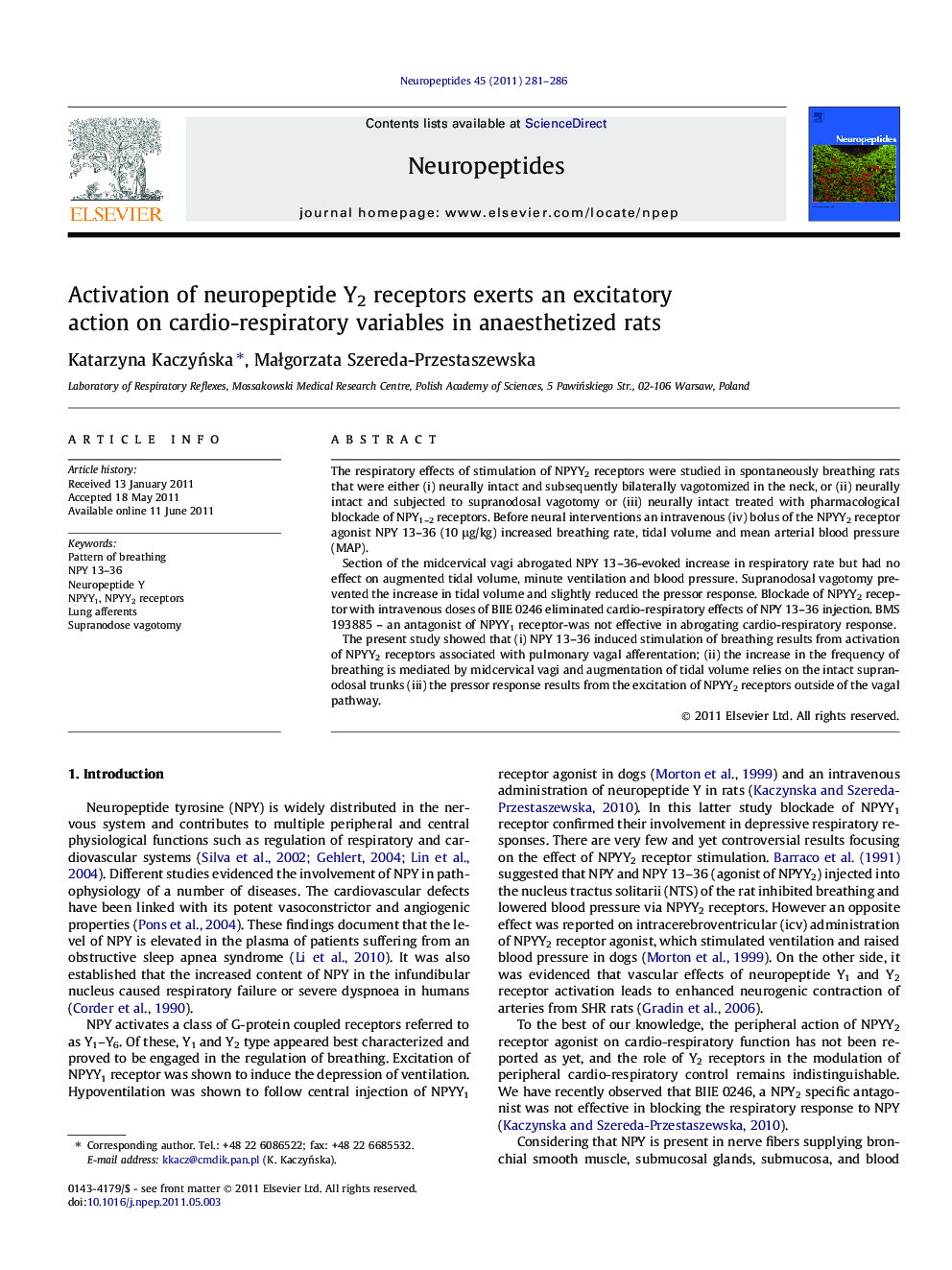| Article ID | Journal | Published Year | Pages | File Type |
|---|---|---|---|---|
| 2808357 | Neuropeptides | 2011 | 6 Pages |
The respiratory effects of stimulation of NPYY2 receptors were studied in spontaneously breathing rats that were either (i) neurally intact and subsequently bilaterally vagotomized in the neck, or (ii) neurally intact and subjected to supranodosal vagotomy or (iii) neurally intact treated with pharmacological blockade of NPY1–2 receptors. Before neural interventions an intravenous (iv) bolus of the NPYY2 receptor agonist NPY 13–36 (10 μg/kg) increased breathing rate, tidal volume and mean arterial blood pressure (MAP).Section of the midcervical vagi abrogated NPY 13–36-evoked increase in respiratory rate but had no effect on augmented tidal volume, minute ventilation and blood pressure. Supranodosal vagotomy prevented the increase in tidal volume and slightly reduced the pressor response. Blockade of NPYY2 receptor with intravenous doses of BIIE 0246 eliminated cardio-respiratory effects of NPY 13–36 injection. BMS 193885 – an antagonist of NPYY1 receptor-was not effective in abrogating cardio-respiratory response.The present study showed that (i) NPY 13–36 induced stimulation of breathing results from activation of NPYY2 receptors associated with pulmonary vagal afferentation; (ii) the increase in the frequency of breathing is mediated by midcervical vagi and augmentation of tidal volume relies on the intact supranodosal trunks (iii) the pressor response results from the excitation of NPYY2 receptors outside of the vagal pathway.
